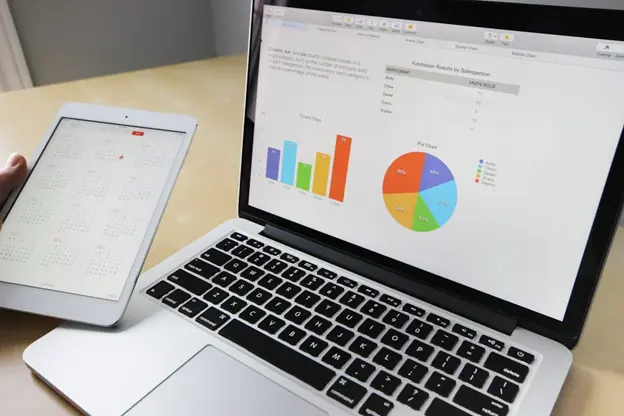
Fintech firms have evolved rapidly over the last two decades. The COVID-19 pandemic accelerated this growth, pushing consumers and businesses to depend more heavily on digital financial solutions. Even after global recovery began, the industry’s momentum remained strong.
Today, fintech services are no longer optional but essential for individuals and organizations, especially in providing faster access to emergency funds. Several key tools and innovations make this possible, bridging the gap between traditional banking and modern financial accessibility.
Digital Loan Applications
Fintech platforms allow people to apply for loans entirely online. The process eliminates in-person visits, paperwork, and long queues. Applicants complete forms, upload documents, and verify details through secure apps in just minutes. This digital setup means funds can be approved and transferred faster, giving individuals immediate relief during emergencies when traditional banking methods might still be processing initial paperwork. By streamlining every step, digital loan applications make financial assistance more accessible to a wider range of users, regardless of their location or banking history.
Instant Loan Approval Systems
Traditional lending often involves manual review and multiple sign-offs, which cause delays. Fintech companies replaced this with automated systems that evaluate credit profiles instantly. Once an application is submitted, algorithms review data and provide approval decisions in real time. This efficiency ensures qualified borrowers receive funds in hours rather than days, which is especially helpful when medical bills or sudden repairs require quick financing. Beyond speed, these systems also reduce human error and bias, creating a fairer and more consistent lending process.
Automated Identity Verification
Identity verification once required physical documents and face-to-face validation. Fintech simplified this through secure digital tools that verify personal information instantly using uploaded IDs and biometric data. This technology prevents fraud while removing long waiting times. Individuals can access financial services faster since their identities are confirmed in minutes, making emergency funding smoother and more efficient than traditional verification methods.
E-KYC (Electronic Know Your Customer) Systems
E-KYC streamlines account creation and loan applications through online verification. Instead of manually submitting documents and waiting for physical checks, users upload their IDs digitally for immediate authentication. Fintech systems verify these documents using government databases, completing the process in minutes. This speed allows people to open accounts or receive funds right away, which is critical during time-sensitive financial emergencies.
Online Credit Assessment Tools
Fintech platforms assess creditworthiness using real-time data such as income, spending, and payment behavior. Unlike conventional banks that rely only on formal credit scores, these tools analyze multiple data points to reach fairer and faster conclusions. The process gives more people access to loans during emergencies, especially those without strong banking histories. It makes emergency lending quicker, fairer, and more inclusive.
Real-Time Fund Disbursement
Once loans are approved, fintech systems transfer money directly to a user’s account. This removes the typical delay between approval and release found in older banking systems. The best part is borrowers can receive funds from online loans same day, sometimes, even within minutes. Some lenders also provide flexible repayment schedules that can adjust to individual financial situations, making the process faster, more manageable, and better suited for emergency needs. In addition, borrowers often have access to digital dashboards that track payment dates, outstanding balances, and transaction history, providing transparency and control over their finances.
Instant Access with Mobile Finance Apps
Fintech-powered mobile banking gives users full control over their finances through smartphones. They can send money, check balances, and apply for emergency loans anytime without visiting a branch. This accessibility ensures financial help is always within reach. In critical moments, users can transfer funds or make payments immediately, saving precious time that traditional banking systems might spend on manual verification or business-hour limitations.
Peer-to-Peer (P2P) Lending Platforms
P2P lending connects borrowers directly with lenders through digital platforms. By removing traditional banking intermediaries, the funding process becomes faster and more flexible. Borrowers submit applications online, and individual investors review them immediately. Once accepted, funds are transferred quickly, often within hours. This model offers a faster path to emergency money, especially for users who might not meet standard bank requirements.
Crowdfunding Platforms
Crowdfunding sites give individuals or organizations the chance to raise money from a community online. Fintech makes the process seamless by handling payments, tracking donations, and distributing funds instantly. During emergencies such as natural disasters, accidents, or health crises, these platforms help people gather support fast. Contributors can donate immediately, while recipients access funds within hours, helping them respond effectively to urgent needs.
Managing Expenses with BNPL Options
Buy-now-pay-later services let users make immediate purchases and delay payment over several installments. This option helps people handle urgent expenses without waiting for payday or taking a loan. Fintech platforms make approval nearly instant, allowing users to access products or services when they need them most. It provides short-term flexibility while maintaining financial control during emergencies.
Moving Forward with Fintech Confidence
Fintech has transformed how individuals and businesses handle financial emergencies by providing faster, simpler, and more reliable access to funds. The world is becoming increasingly digital, and not familiarizing yourself with these financial solutions could mean missing valuable opportunities. Access to information has never been easier, so success depends on one’s willingness to learn and adapt. If unsure, don’t hesitate to seek professional advice. Now, it’s just one click away.





